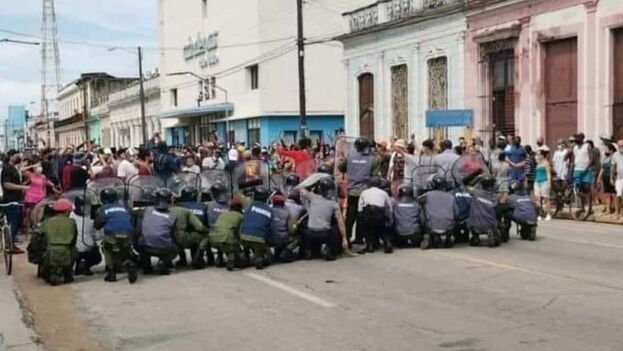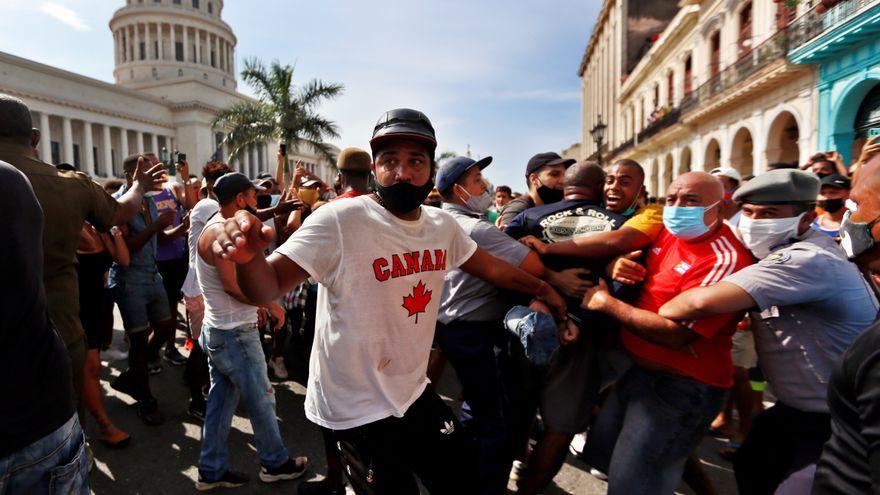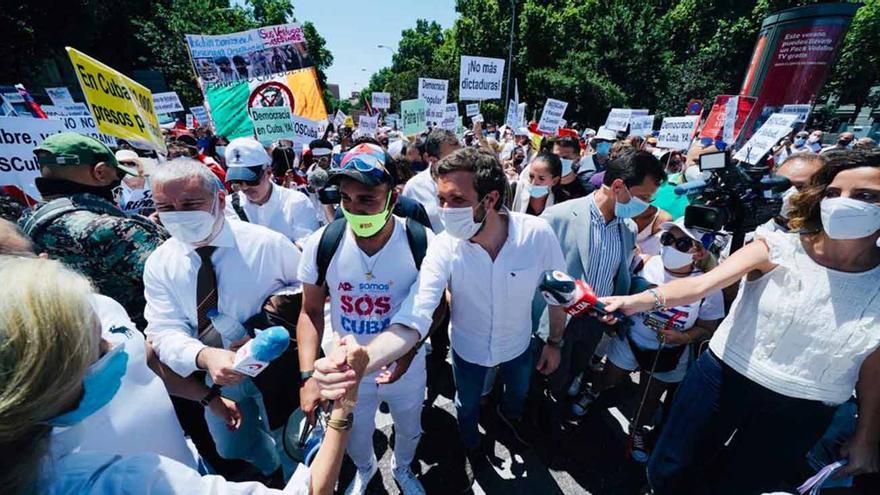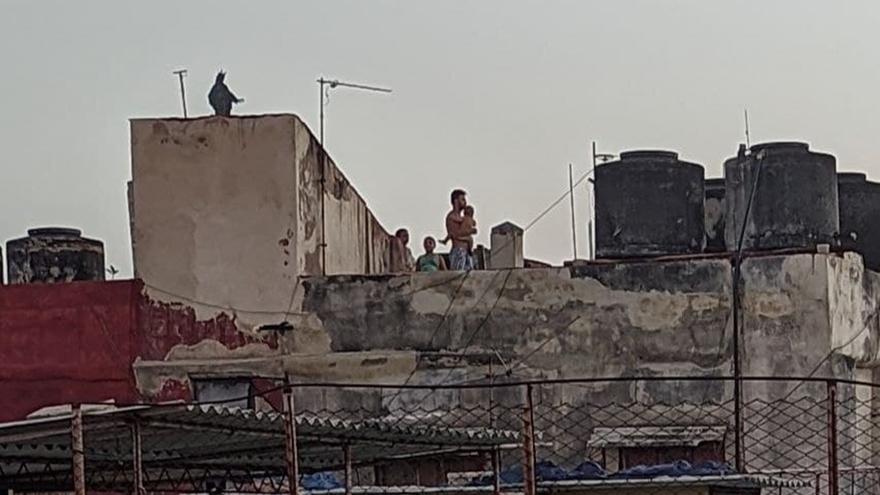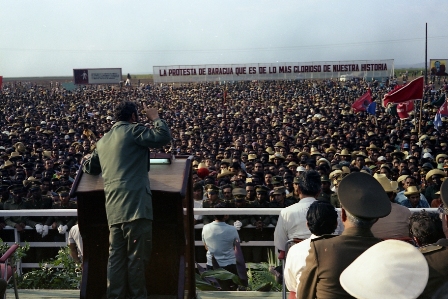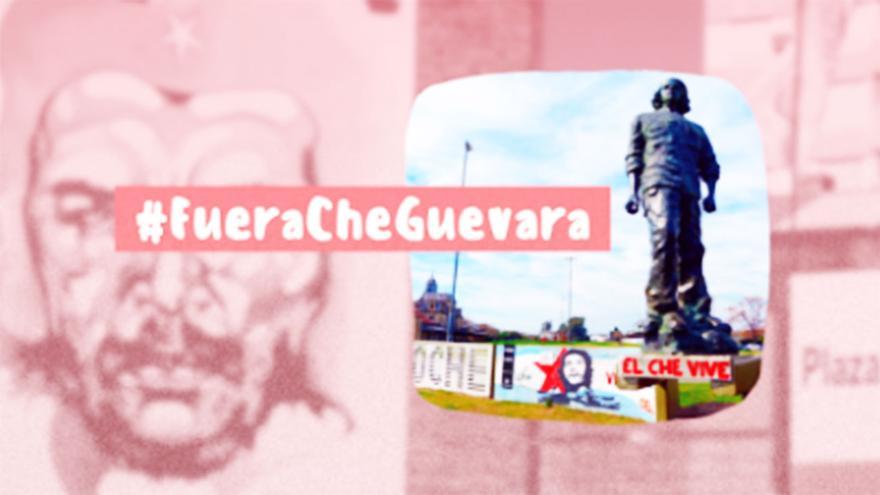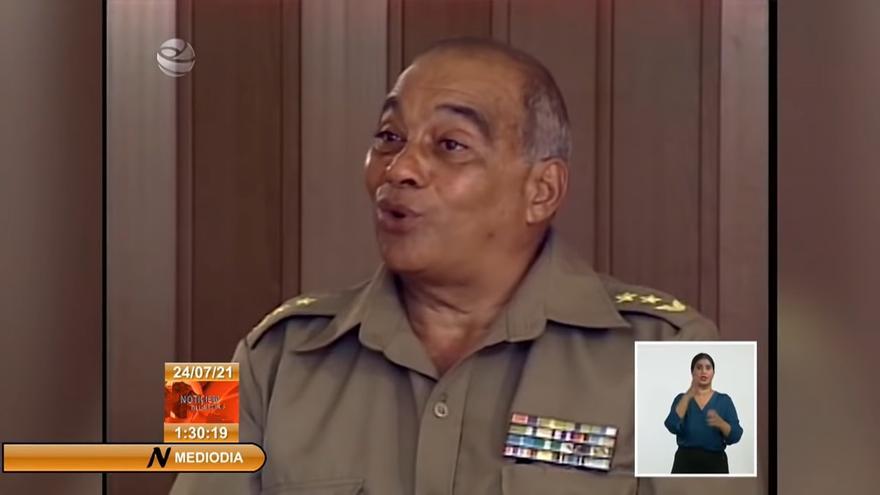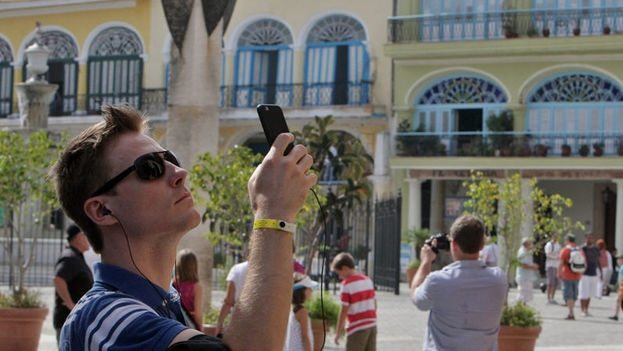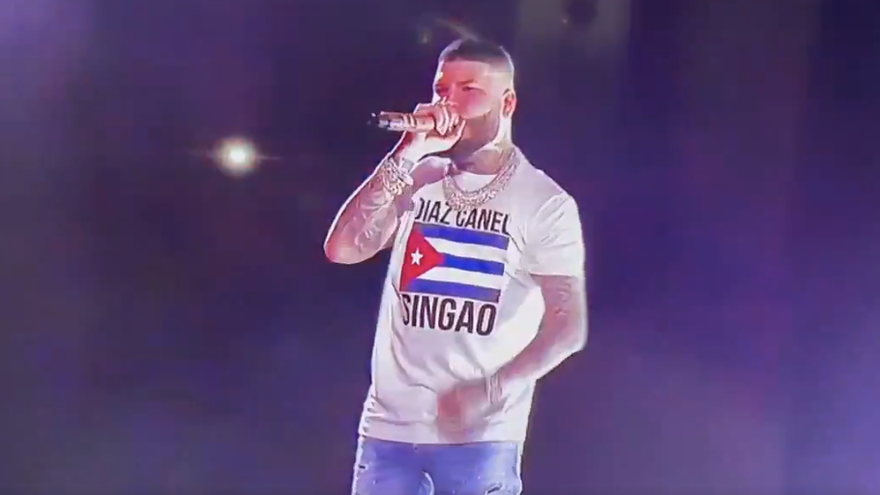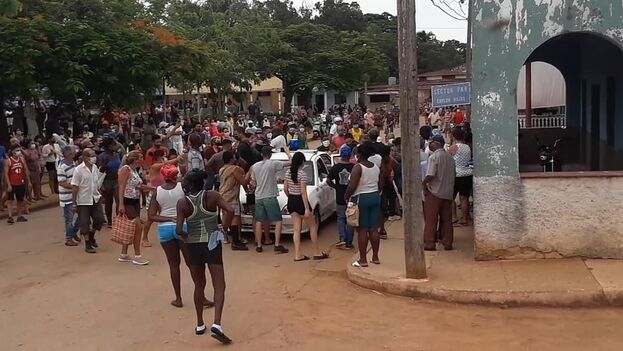These bureaucratic administrations are not officially allowed to take full control of the profits of the companies they run, but they do have access to them, so the State also requires other officials in charge to carry out audits.
But auditors are also human beings, vulnerable to corruption. Thus, a corrupt bureaucratic caste is being generated which is responsible for constant “deficiencies” and resource diversions that are undermining the economic system and giving rise to a permanent, structural crisis.
Consequently, the Party-State elite will always need two external supports to survive: an ally with sufficient resources to subsidize its survival and an external enemy to blame for the situation of precariousness of the population finds itself in and for provoking internal protests.
If the first one is missing, a terminal decomposition process begins. If the second is lacking, the Party-State elite remains naked before continue reading
the population and international public opinion as the main culprit of the internal evils.
A corrupt bureaucratic caste is being generated which is responsible for constant “deficiencies” and resource diversions that are undermining the economic system and giving rise to a permanent, structural crisis
In Cuba, these two supports were taken into account for many years. In the first two decades there was not much need for the first one, because they counted on the high prices of sugar in the international market, profits that were used in military adventures, especially in Africa and in support of Latin American guerrilla movements. Meanwhile, here at home, the population suffered housing and transportation crises and shortages of food and clothing, not to mention the successive blackouts, something similar to what would later occur in Chávez’s Venezuela despite the high prices received for the oil exported by that country.
When the so-called socialist camp in Europe collapsed, the Cuban economic system appeared in its true nature. The critical period that began then was not, in fact, a “Special Period”, as Fidel Castro baptized it, it was the same as always, a structural and permanent crisis, but without the subsidies the Island had received until then.
Then, “on the edge of the abyss” — these are not my words but Raúl Castro’s — they managed to find a new ally to sponsor them: Chávez’s Venezuela. Thus, they were able to postpone the implosion of the system for a while longer. But as Venezuela followed in Cuba’s footsteps, it began to endure more and more of the same mayhem. Halfway through, some Venezuelans lamented that they were “hitting rock bottom.”
I told them in an article: “No, we Cubans know that you are not there yet.” Until they finally did learn what it was like to hit rock bottom. Many wondered how a country so rich, so prosperous, has fallen into such misery.
For Cuba, this meant the loss of the subsidiary source once again. And of course, the start of a new “special” period was announced. But since that word brought traumatic evocations, the term “conjunctural” arose, with the implied additional meaning of “temporary.” Whatever it is called, it is the system just as it is, with no one to subsidize it. As no new sponsor appeared, the country collapsed and the people took to the streets.
How did they not realize that this was going to happen? Many inside and outside of Cuba warned and advised them: you have the solution in your hands: open the markets, lower taxes, let the agricultural workers sell their products to whoever they want and at market prices, allow “roundtables” so that people voice their opinions and we all look for solutions. But they did not listen.
Now, when the people cry out for the resignation of those who are truly responsible for the disaster, they bring out the police, the Black Berets, the riot forces and the paramilitary mobs with batons, bats, firearms and even anti-aircraft guns. The exact number of detainees, and of the wounded and dead, is not yet known.
“No, we Cubans know that you are not there yet”. Until they finally did learn what it was like to hit rock bottom
From that moment on, the second resource – the external enemy to blame – was required more than ever: “the imperialist blockade.” When you say “blockade” you tend to think that all ports are obstructed by military ships to prevent the entry of food and other merchandise, but in reality, it is about another nation that refuses to trade with Cuba due to the property confiscations carried out at the beginning of that regime. That said, many still wondered how there is also a shortage of countless food products produced in the country itself that were never lacking on Cuban tables.
Cuba has diplomatic and commercial relations with around 70 countries in the world, and, as if that were not enough, after the end of the Cold War, the United States became Cuba’s main trading partner in terms of agricultural products, though under the condition that Cuba must pay for its purchases in cash, simply because it has lost the trust of its creditors due to an astronomical debt that Cuba has not been able to pay.
Many opponents have naively argued that the embargo should be maintained because it can be used as a “bargaining chip” to achieve concessions from the regime, but a bargaining chip only serves when the one to whom it is offered is interested in receiving it, and that leadership has repeatedly shown that it wants just the opposite. To pressure Cuba, instead of intensifying the embargo, it would be preferable to threaten to lift it, because despite the fact that Cuba publicly condemns it, behind the scenes it uses its continuation as a justification.
Many examples could be cited from Gerald Ford’s presidency, when Carlos Rafael Rodríguez secretly negotiated with Henry Kissinger for a rapprochement like the one made with China, but it was sabotaged by Castro himself when he sent Cuban troops to Angola.
Then, there was another process in Carter’s time, starting with the dialogue in ’78 and cut short in ’80 with the Mariel exodus.
In 1996, when the Helms-Burton Bill to intensify the embargo was about to suffer a crushing defeat in Congress, Cuban forces shot down two civilian airplanes operated by ‘Brothers to the Rescue’, resulting in the death of four exiled young men, which only hastened approval of the Bill.
Negotiations with the Obama Administration led to the reestablishment of diplomatic relations and could have culminated in neutralizing the fangs of the embargo, but the Cuban leader, now officially retired, forced a political turn with his critical ‘Reflection’ article, titled Brother Obama.
A bargaining chip is only useful when the person to whom it is offered is interested in receiving it, and that leadership has repeatedly shown that what it wants is the opposite
Now the same resource is being resorted to again to justify the tidal wave of mass protests throughout the country: the “imperialist blockade” is blamed for the lack of food and medicine that has led to the deaths of tens of thousands of people, including many children and the elderly, and the despair of a large portion of the population.
Even the decision to take to the streets was diabolically forged abroad by the “empire and its lackeys.” Of course, they don’t mention that they repeatedly denied permission for aid from abroad and even from a humanitarian corridor, because Cuba, a “medical power,” does not need it.
But the vast majority of protesters were humble people with very low resources whom no one can accuse of being wage earners of the “empire.” If at this point, after 62 years of a Revolution supposedly in favor of the poorest, there are so many “confused” people, better pack your bags, because this country has already begun to write its own history.
Translated by Norma Whiting
____________
COLLABORATE WITH OUR WORK: The 14ymedio team is committed to practicing serious journalism that reflects Cuba’s reality in all its depth. Thank you for joining us on this long journey. We invite you to continue supporting us by becoming a member of 14ymedio now. Together we can continue transforming journalism in Cuba.

![]() 14ymedio, Hans Lunell (Letters from Readers), Stockholm, 26 July 2021 — I am writing this letter from Sweden, one of the most developed countries in the world as it is free, democratic and capitalist. You live in one of the poorest and most unsuccessful countries in the world since there is no freedom, it is totalitarian and communist.
14ymedio, Hans Lunell (Letters from Readers), Stockholm, 26 July 2021 — I am writing this letter from Sweden, one of the most developed countries in the world as it is free, democratic and capitalist. You live in one of the poorest and most unsuccessful countries in the world since there is no freedom, it is totalitarian and communist.
